Hezký video.
Proč zrovna tam začli kopat takovou velkou sondu? Neumim polsky.
Metal detector found the grave of a German soldier. He was hiding rare coins and stone age objects
Categories: Treasures , Nálezy nejenom s detektorem kovů ve východní Evropě
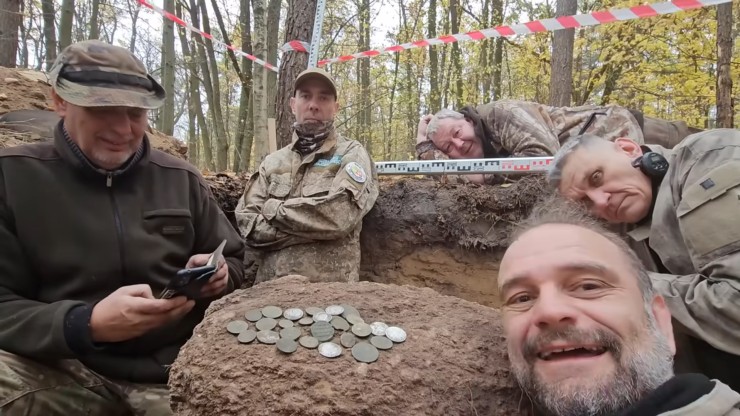
A soldier's grave from the end of World War II was discovered using a metal detector in the Wdecki Landscape Park near the village of Grzybek in Poland. During his exhumation, coins and other objects of various ages and origins were discovered in the grave. The oldest artefacts date back to the Mesolithic period 9,000 years ago.
Archaeologists uncovered the grave of a German soldier who was buried near the shore of Lake Żurskie. He apparently fell during the fierce battle for the Grzybek Bridge, lying in his own shooting trench. During the excavation of the grave , archaeologists discovered that the soldier was buried right in the middle of a rich archaeological site.
Neolithic objects and pottery, Mesolithic tools and a collection of coins from various periods of European history were uncovered. The coins may have belonged to a fallen German soldier or one of his colleagues. "This is where the Wda River narrows and there have always been attractive conditions for human settlement. That's probably why it became the site of events not only during World War II, but also in the Neolithic period," archaeologist Olaf Popkiewicz, the head of the park's excavations, told Science in Poland.
The pottery belongs to the Neolithic culture of spherical amphorae. It could be up to 5,000 years old, as this culture inhabited northern Poland between 3,100 and 2,600 BC. "This is not the first finding of the spherical amphora culture in the park," Popkiewicz noted. "But the site appears to be preserved in excellent condition, as evidenced by the well-preserved cultural layer from this period. The site can thus be extremely valuable for understanding the daily life of Neolithic communities in the Tuchola Forest," he added.
"Here we have traces of the settlement of the first farmers on Polish territory," Popkiewicz further said. "Among other things, we found an object that may be some kind of charcoal oven. Because we have a large amount of tar-like substances here."
"We also found six Roman sesterces, and we started to find other coins next to them. For example, coins from the Byzantine Empire, a follis of the Bulgarian emperor Basil II from the late 10th and early 11th century. Then there was a time jump to the period of Sigismund III. Vasa. Next, Russian coins from the time of the division of the Polish Kingdom, Russian coins from the Romanov Empire, British coins from the reign of Queen Victoria, Austro-Hungarian coins from the 2nd century. The coins of the Hungarian Empire of the 19th century and Polish circulation coins from the interwar period."
There are about 30 coins in all, said Popkiewicz, who believes they are the collection of one or more soldiers who collected them during military expeditions across Europe. "If we look at the route of the 73rd Infantry Division, which is the most likely unit the fallen soldiers we found served with, it matches the route with the countries the coins were found from. However, these were not circulating coins, but old, historical coins," the archaeologist concluded.
Video Part 1
Video Part 2
Roman Němec
Sources: researchinpoland.org, aol.com, parki.kujawsko-pomorskie.pl/wpk
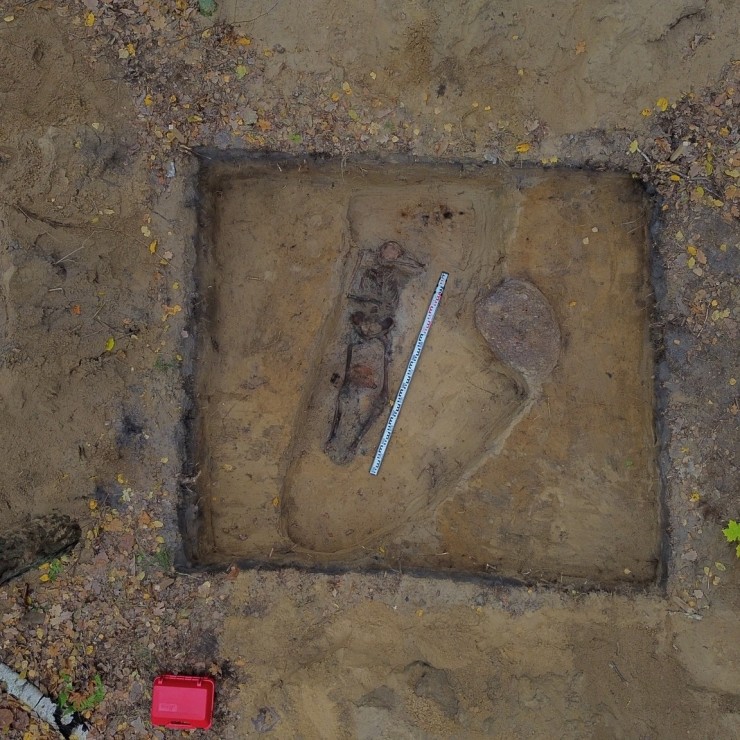
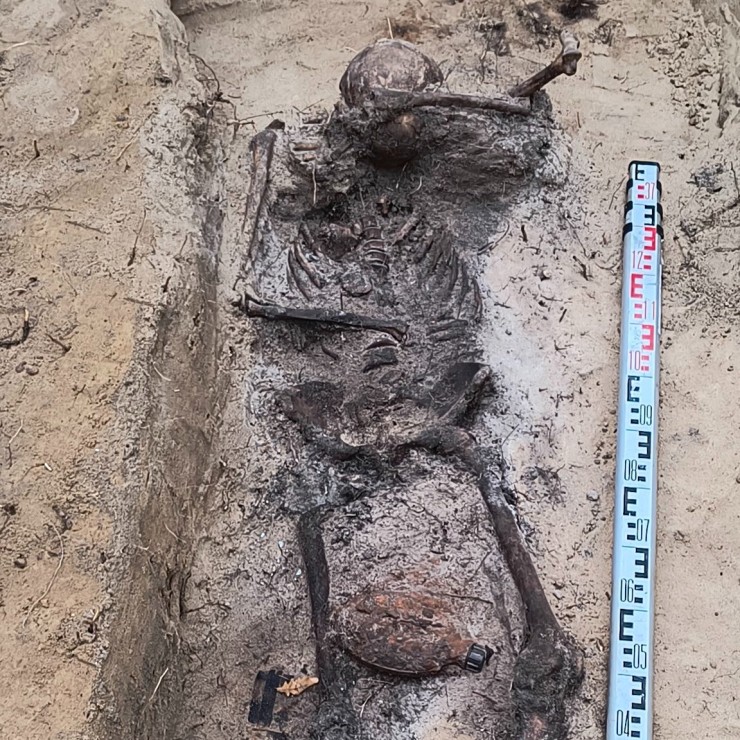
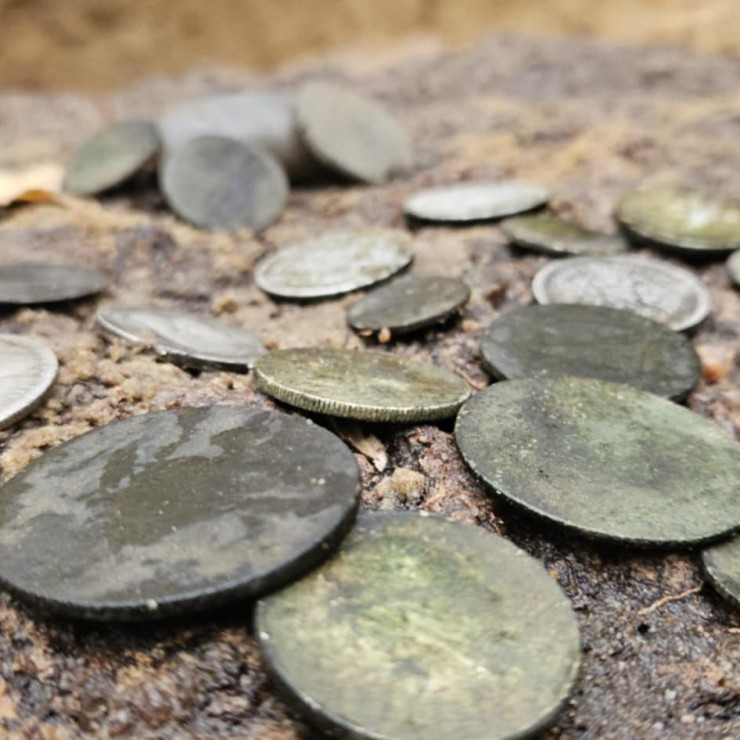
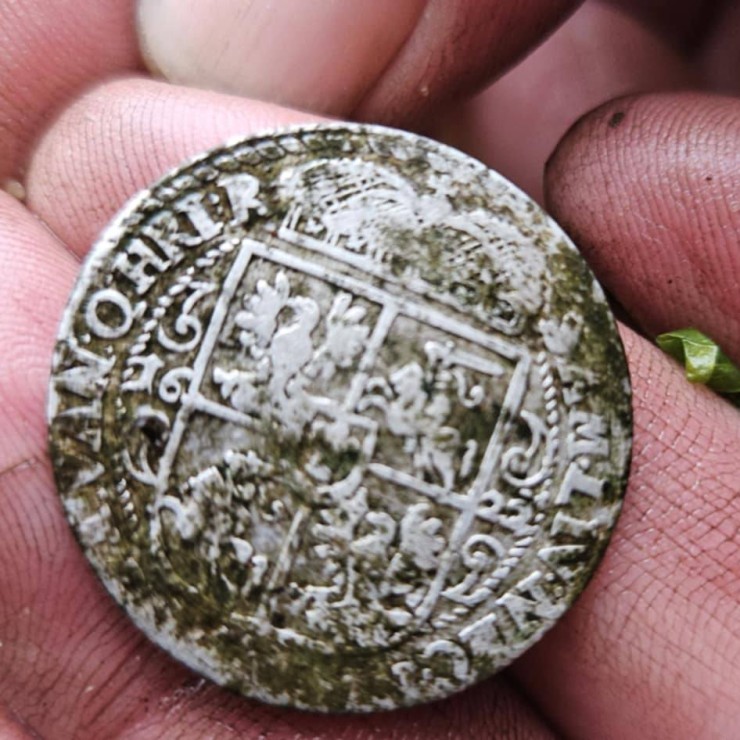
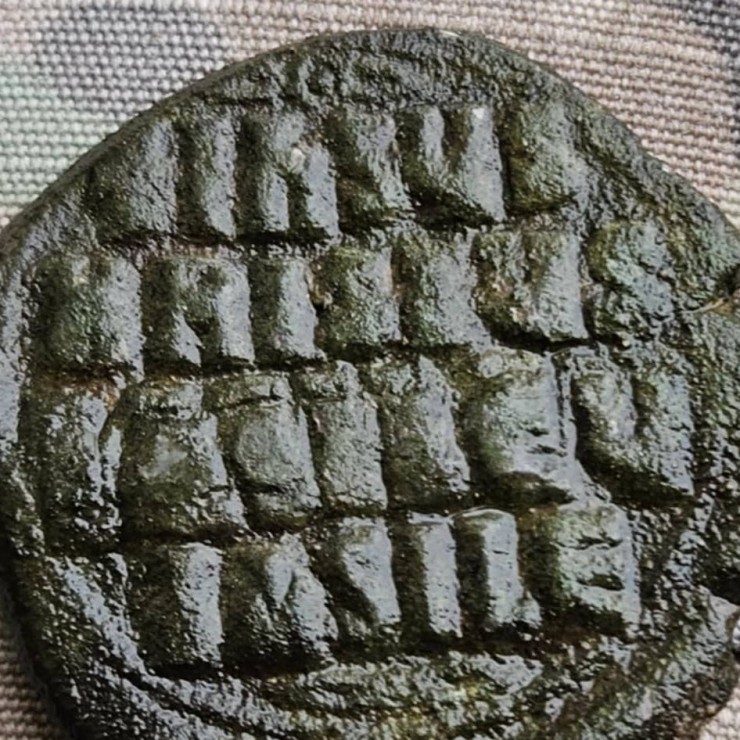
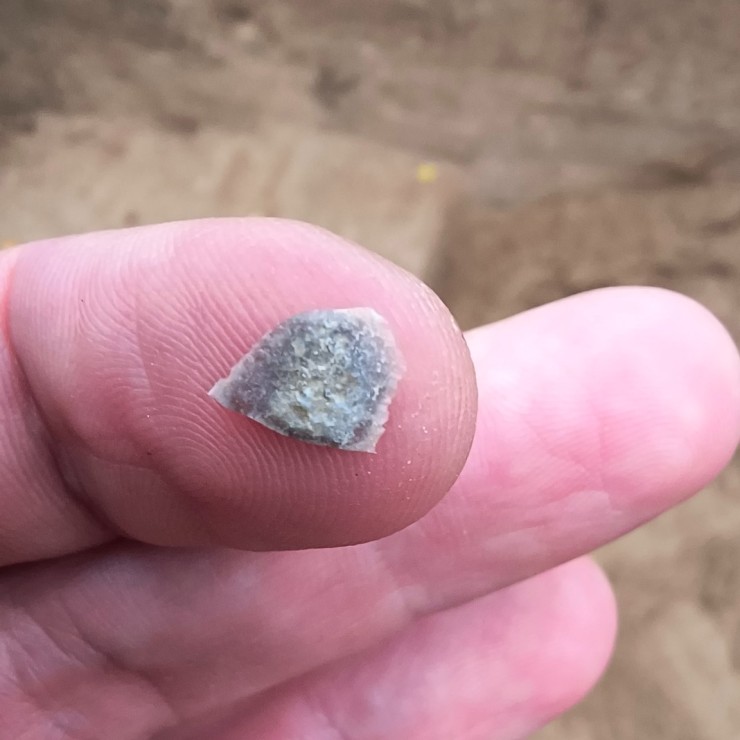
The article is included in categories:
- Archive of articles > Treasures
- Archive of articles > Archaeology > Finds and rescue research abroad > Nálezy nejenom s detektorem kovů ve východní Evropě
Post
Dom: Na začátku byl detektorový signál, pak pažní kost a už to jelo.
Parádní článek, dík👍
připomíná to spíše veselé kopání studny, jak hrobu
- ten ukecanej nadšenec, co nevzal lopatu do ruky, ten má ty pohyby a historii divizí docela nachozený, to se musí nechat
- říká tam, čím vším si ten nebožtík před svým skonem prošel, pokud teda byl ten odznak jeho - a je tedy celkem zázrak, že se dostal až tam
- a ještě musím vyzvednout vysokou kvalitu snímku - jak ze stránky interesantní, tak i technické
ps.
šlak mě bere, když hraboši najdou minci a šudlí to v ruce, až to skřípe 








